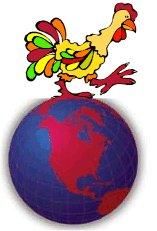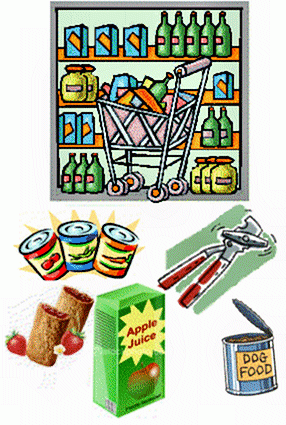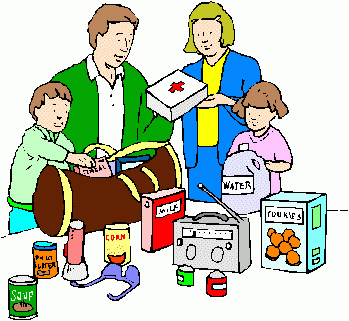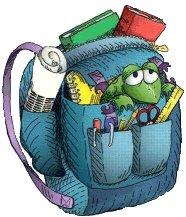Pandemic Flu
Pandemic Flu...What to do, what to do!
What is "Pandemic Flu"?
- A "pandemic" is when a disease is spread from person to person throughout the world.
- A "pandemic flu" occurs when a new influenza virus (which we call "flu") spreads easily and very quickly, making a lot of people throughout the world sick.
- The Swine flu virus (H1N1) caused more young people and pregnant women to get sick in the 2009–2010 flu season than is usual during flu season.
- Some doctors and scientists are worried that a pandemic flu will make a lot of people very sick. They are also concerned that someday the Avian flu (also called "bird flu") could become "contagious" (spread from person to person) and become a pandemic.
But that has NOT happened yet! Only a few cases of bird flu have have happened in people.
What can YOU do to help?
We can get vaccinations (shots or medicine) to protect us from some diseases like measles, tetanus, and some kinds of flu. But sometimes a new flu spreads so quickly that doctors and scientists do not have enough time to develop a vaccine to keep us from getting sick. When that happens, it is important to stay away from people who may have the flu. And if you are sick, it is important to make sure you do not spread flu germs to someone else.
Stay Healthy and Protect Others Too!
There are many things you can do EVERY day to help limit the spread of germs and prevent infection! Here are some good health tips for you and your friends and family:
- Eat a healthy, well balanced diet, including plenty of vegetables, fruits, and whole grain products. Also eat low-fat dairy products (milk, yogurt, cheese, ice cream!), lean meats, poultry, fish, and beans.
- Drink plenty of water and go easy on salt, sugar, and saturated fat.
- Exercise on a regular basis and get plenty of rest!
- Wash your hands frequently with soap and water.
- Cover your mouth and nose with a tissue when you cough or sneeze. If you are caught off guard and have no tissue, cough or sneeze into the crook of your arm (bend of the elbow) or your sleeve. You could also use your hand to cover your mouth, but ONLY if you can wash your hands with soap and water right away, before touching anything else.
- Put used tissues in a waste basket.
- Stay away from others who are sick as much as you can.
- Stay at home if you are sick. You should not go visiting, to school, to play, or to special events when you are sick. That is the time to stay home with a good book or some other fun indoor activity that you feel well enough to do.
For Parents — Be Prepared
If there is a flu pandemic before there is a vaccine, people may need to stay home for some time so they do not get the flu from someone else. That is why it makes good sense to BE PREPARED before anything happens in your neighborhood. You and your family can plan ahead for many emergency situations by using the following checklist!
- Stock at least a two (2) week supply of water and food. During a pandemic, if the people who take care of our water supplies are sick, water may not be available. If people are told to stay home or if you are sick yourself, you may not be able to get to a store. Even if you can get to a store, it may be out of supplies if the people who run the store or the people who supply products to the store are sick or required to stay home. So it is important for you and your family to have extra food and water on hand. And, of course, extra food and water would also come in handy for other types of emergencies, like when the power is out due to a major storm!
- Stored foods should be "non-perishable" (that means they should stay good for a long time without needing to be in a refrigerator). They should also be easy to prepare in case you are unable to cook, and they should require little or no water to prepare so that you can save your water for drinking. Here are some ideas for non-perishable foods to have on hand:
- Ready-to-eat canned meats, fish, fruits, vegetables, beans, and soups
- Canned juices
- Canned or jarred baby food and formula
- Fluids with electrolytes (minerals that help keep your body's fluid levels in balance), like Gatorade© or, for babies, something like Pedialyte©
- Bottled water
- Protein or fruit bars
- Dry cereal or granola
- Peanut butter or nuts
- Dried fruit
- Crackers
- Pet foods (don't forget your furry and feathered friends!)
- Fill out a Family Emergency Health Information Sheet and an Emergency Contacts Form. And talk with family members and loved ones about how they would be cared for if they got sick, or what will be needed to care for them in your home.
- Keep a good supply of prescription and nonprescription medicines and other health supplies that are needed often, including pain relievers (like aspirin), medicines for an upset stomach, cough and cold medicines, and vitamins. Here are some ideas for medical, health, and emergency supply items to have on hand if you have to stay at home for some time:
- Needed medical supplies like glucose (blood sugar) and blood-pressure monitoring equipment, if you regularly need to check your blood sugar or blood pressure
- Soap and water or hand wash
- Medicines for fever
- Thermometer
- Anti-diarrhea medicine
- Fluids with electrolytes, like sport drinks
- Vitamins
- Flashlight
- Batteries
- Portable radio
- Manual can opener
- Garbage bags
- Tissues, toilet paper, disposable diapers
Kids Comfort Pack!
Kids can create their own personal comfort pack! They can include a favorite book, stuffed animal, toy, coloring and activity books, or other things that will help them feel calm and comfortable during an emergency.
Pandemic Resources for Parents
www.PandemicFlu.gov, a website managed by the U.S. Department of Health and Human Services for one-stop access to U.S. Government avian and pandemic flu information.








